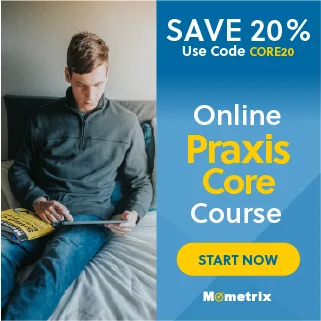The Praxis Special Education: Core Knowledge and Applications (5354) exam is used to determine a candidate’s knowledge of the basic principles and application of Special Education from preschool to grade 12. Many states require the exam for educator licensure. Teacher preparation programs may utilize the examination to determine a candidate’s potential success and may use the exam in their application process.
Test design
The Special Education: Core Knowledge and Applications exam assesses your knowledge and understanding of teaching techniques to individuals with disabilities ranging from mild to profound. The test is a computer-delivered exam consisting of 120 multiple-choice questions, and you have two hours to complete it. The content of the exam is drawn from the Special Educator Professional Preparation Standards created by the Council for Exceptional Children (CEC).
The test evaluates the knowledge of basic principles of Special Education that every new teacher should have. It also assesses your ability to apply the principles to situations that you may encounter throughout your career as an educator. The test focuses on five major content areas:
- Development and characteristics of learners – 16%
Content knowledge included in this content area includes human development and behavior, theoretical approaches to learning and motivation, characteristics of major disabilities, the impact of disabilities on the student and family, the self-identification process and impacts upon it, concurrent conditions, and influences on development.
- Planning and the learning environment – 23%
This content area assesses your knowledge of developing effective lesson plans that are measurable, challenging, and accessible to students and their learning styles. Your understanding of the learning environment and its management are essential to providing a safe place for your students to learn and grow.
- Instruction – 23%
As the content title implies, this section evaluates your knowledge of instructional strategies and techniques that are appropriate to age groups and individual abilities. Your knowledge of applying strategies in one-on-one, small group, and large group settings that allow for generalization of concepts and behavior intervention are assessed. Additionally, your ability to integrate assistive technology within the classroom is examined.
- Assessment – 18%
As an educator, you need a formal method to assess a student’s progression and evaluate your teaching methods. This content area examines your understanding of the use of assessments and how to apply the results to enhance and enrich a student’s learning experience.
- Foundations and professional responsibilities – 20%
In this content area, your knowledge and understanding of the rules and regulations that guide your behavior as an educator are examined. Topics included in this area include federal definitions, federal requirements and safeguards, components of an individualized education program, legislation that affects educational delivery, collaborative approaches, communication, identification of potential bias issues, and the roles and responsibilities of the Special Education teacher.
Registration, cost, and location
The registration fee is $120.00, and there are different methods to register for the examination including online, by mail or by phone. Phone registration incurs an additional $35.00 processing fee. Testing centers are located nationwide. Each testing center determines their availability with appointments generally available Monday through Saturday, holidays excluded.
Active duty military, Veterans, Reserves and National Guard may be able to use their educational benefits to cover the cost of the examination registration fee.
Test Day
A confirmation of registration is emailed to you with information on your appointment including test location and test time. Print the admission ticket and take it with you to your appointment. Arrive 30 minutes before your exam time to allow time for parking and pre-test activities. Your email confirmation will include information on the identification required, and what you can and cannot bring to the testing center.
After you complete the pre-test activities, you are escorted to your testing station. All materials, including scratch paper, are supplied. There is a familiarization tutorial offered before you begin your exam. When the tutorial concludes, your exam begins.
If time remains when you have finished the exam, take the time to review your answers. You are scored on correct responses. Incorrect answers do not count against your score, so it is beneficial to answer every question, even if you have to guess.
Exam scoring and results
You receive one point for every correct answer. The number of correct answers is your raw score. It is then converted to a scale score ranging from 0 to 200. Passing scores vary between states with a range of 145 to 164 required to pass the examination.
Depending on the test center, you may receive a print out indicating your unofficial score. 10 to 16 days after your test date or testing window closes, your official results are available in your online account, and your results are automatically relayed to the institutions or licensing agencies you identified when you registered for the test.
If you did not receive a passing score, you can retake the exam once every 21 days.
How Can I Prepare for the Praxis Special Education: Core Knowledge and Applications Test?
That’s a great question. We’ve broken down the answer into three parts.
- Do yourself a favor and study. Do not walk in unprepared. We have recommended prep materials below, but that only helps if you actually try. Plus, studying is actually proven to be the best antidote to test anxiety.
- Take care of yourself. Make sure you’re eating well, exercising, and sleeping. All of these things are scientifically linked to brain performance. If you take care of your body, you’ll be helping your grades.
- Get a study guide or set of flashcards. Some people study better a certain way. Find your study strengths and make the most of them. We’ve tried to make it easy for you by tracking down the best study guide and flashcard set for your exam. Below you’ll see links to both!
